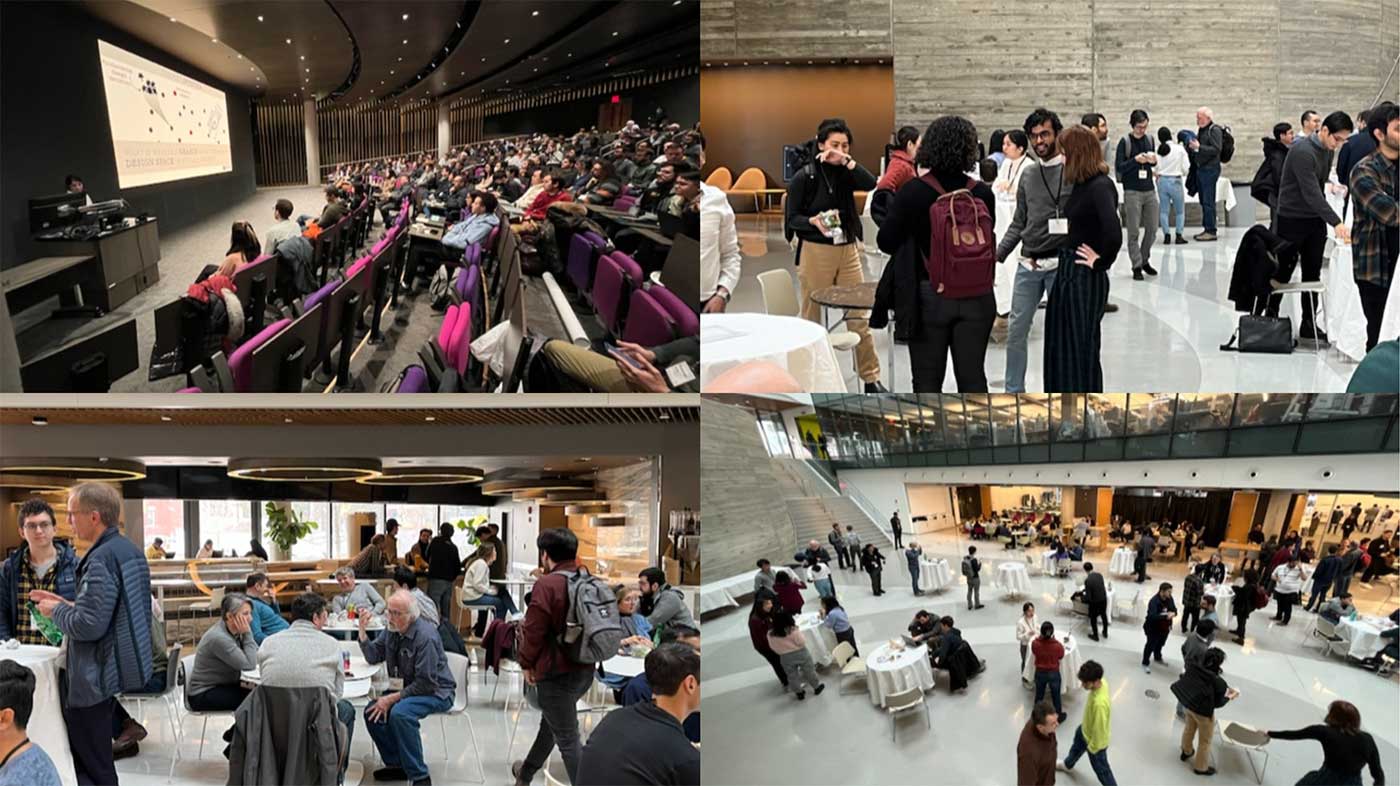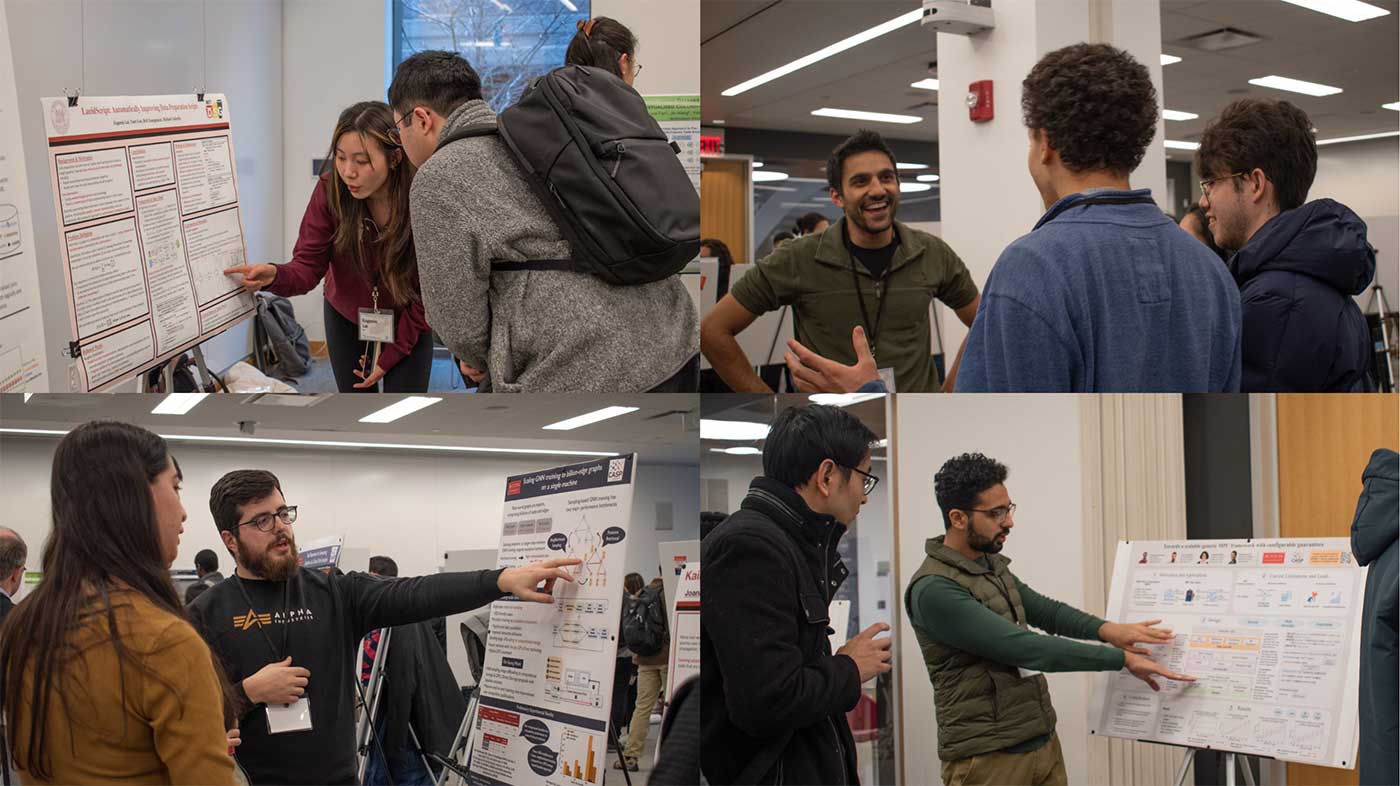Northeastern-hosted database event draws researchers from across the Northeast
Author: Milton Posner
Date: 03.27.23

Beginning in 2009 and continuing for the next 12 years, the MIT-hosted North East Database Day was an annual chance for database researchers across the northeast United States to gather, connect, and showcase their work. But shortly after the 2020 event, the COVID-19 pandemic arrived to scuttle the following two years.
Then, on March 10, 2023, the event was finally held for the 13th time, with Northeastern University playing host for the first time. Roughly 200 database researchers from industry and academia — including professors, postdocs, and PhD students — convened in the Interdisciplinary Science and Engineering Complex for a day of presentations, talks, posters, and socializing.
“We thought it would be a good opportunity for Northeastern to have a leading role in this,” says Khoury College doctoral student Nikos Tziavelis, who co-chaired the program alongside MIT’s Brit Youngmann and El Kindi Rezig. Tziavelis’ PhD advisor Wolfgang Gatterbauer and MIT’s Sam Madden co-organized the event, which received funding from Khoury College, Northeastern’s Institute for Experiential AI, and the DATA Initiative within the D’Amore McKim School of Business.
“Especially for students, it can be tough to meet professors and even other students from outside their university, even though we are pretty close geographically,” Tziavelis says. “And this is an excellent opportunity to do that.”
The program consisted of 21 presentations and talks, including keynotes on knowledge graphs and human data interaction, as well as presentations on self-designing storage engines, interactive visualization interfaces, enterprise software, and more. Then came an afternoon poster session in which more than 40 researchers — mostly doctoral and postdoctoral researchers — displayed their work and discussed technical details with observers.
“The role of the main international database conferences like SIGMOD, PODS, and VLDB is in being a venue to present work,” Tziavelis said. “This event isn’t as large, but it’s another opportunity to present your work, to show others what you’re doing, and to develop collaborations.”
Tziavelis added that the industry professionals in attendance, apart from bringing interesting ideas to market, are doing innovative research work. They want to present it somewhere, build connections with universities, pitch their ideas, and draw on human capital in the Northeast. Gather all the attendees together, and the result is an event where the field’s local thinkers can connect and collaborate.
“I reconnected with people I hadn’t seen in many years,” he says. “It was a refreshing experience after years of inactivity, isolation, and Zoom conferences due to COVID.”
 Photos by Cassidy Jacobsen.
Photos by Cassidy Jacobsen.